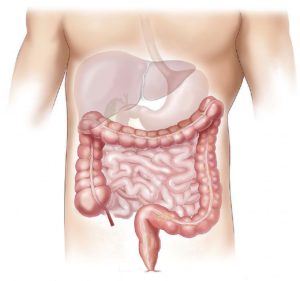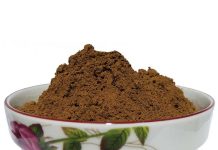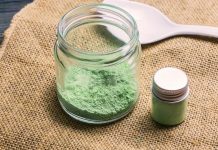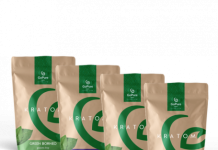Kratom is a supplement available in different forms which is generally used by people all over the world to relieve chronic pain. It is also known to have a positive effect on the consumers mentally as it relieves stress and anxiety as well. But it has a slight downside.
One of the significant side effects of Kratom is constipation which is experienced by a substantial number of consumers.
Constipation can be very uncomfortable; it messes with a person’s bowel habits which can disrupt their schedules. Dealing with such a problem can be very annoying.
This is why people who use Kratom regularly seek a fix for this issue so they can continue with the consumption of this supplement without having to deal with constipation.
Kratom and The Digestive System

Kratom has been used for its beneficial properties for hundreds of years now. Kratom supplements have recently been introduced in the USA.
People in the US have incorporated these supplements in their lives as a healthy and natural alternative to relieve pain.
In moderate dosage, it has little to no effect on the digestive system.
According to research conducted, people who have been consuming smaller doses of Kratom did not experience constipation. But, a slightly higher dosage was found to mess up with the digestive system. This situation prevailed for as long as the supplement was used.
This supplement provides benefits to the consumers, but as a downside, it can dehydrate the consumer’s body.
The lack of water causes excessive water absorption from the faecal material inside the intestines regularly. This dehydration of the body causes the stool to become very hard.
The bowel movements slow down or come to a halt altogether. This leads to the affected consumer experience discomfort with lack of need to go to the bathroom.
Kratom induced constipation generally not harmful or too severe. There is nothing to worry about. It just causes discomfort to the user.
The downside of using Kratom in higher dosage is that it puts the consumer at risk of conditions such as haemorrhoids and anal fissure, etc.
This does not mean people who use Kratom are going to have to make their peace with constipation. There are ways to deal with this problem.
There are certain things Kratom consumers can do during their time of consumption to avoid illness or to lower its intensity.
Signs Of Constipation From Kratom
Following are a few symptoms that can be experienced by someone going through constipation caused as a side effect of consuming Kratom;
- Hard and lumpy stool
- Painful passing of the stool
- Bloating
- Distinctively fewer bowel movements in a week
- Pain in the abdomen
Experiences Of Kratom Users
A significant number of users have stopped taking any other pain medication, and they only depend on Kratom to relieve pain. People have shared their positive stories on the internet. This supplement has changed lives, without a doubt.
But, something thing that was frequently found in these posts about Kratom was a struggle with constipation. It relieved their pain but gave them a different kind of discomfort. Due to this, people have come up with their solutions to beat Kratom induced constipation.
Supplements and medicines may react slightly differently in different people. This occurs due to variation in the functioning of the user’s body.
Some Kratom users mentioned that the kind of pain they struggle with needs higher doses of Kratom, but they never experienced any discomfort in their digestive system.
Few only experienced mild constipation that didn’t cause much trouble. But some people were affected had to lower the dosage.
Some people prefer taking laxatives along with Kratom to balance things out. An experienced user suggested taking prune juice with calcium citrate, magnesium citrate and vitamin D pills to relieve constipation.
Another user only took magnesium citrate pills, but those did not work on his constipation. Instead, they gave him stomach pain.
A few users also suggested the consumption of coffee and tea, but apparently, this does not work on everyone.
What To Do In Case Of Kratom Induced Constipation
As we mentioned earlier, Kratom induced constipation is far from serious. But, at the same time, living with constipation is also not something one would want to put up with. Nobody wants their eating and bowel habits disrupted. It can significantly affect a person’s everyday life negatively.
Below, we discuss a few ways and lifestyle changes one can incorporate in their life if they are experiencing constipation on consuming Kratom regularly.
Lowering Dosage
Kratom has little to no effect on the digestive system when it is taken in moderate amounts. If you are experiencing discomfort, you might want to reconsider the dosage you are taking at the moment. But this change should not be too drastic. Give your body some time to adapt to this change.
Increasing Water Consumption
Kratom is known to cause dehydration. It is generally advised to drink more water than usual when a person is on medication or taking any kinds of supplements. But in this case, drinking more water holds significant importance as it can help relieve constipation.
Excessive water is absorbed in the large intestines, which makes defecation hard and painful. When the body is sufficiently hydrated, there won’t be an increased need to absorb more and more water. Proper hydration may help to keep the faecal material soft for easy passing.
A Balanced Diet With Added Fiber
Fiber is a component in our food that helps soften stool. Doctors advise adding fiber to your diet can help people who continuously struggle with constipation. But remember to take it in moderate amounts.
Certain food materials are rich in fiber such as fruits like bananas, oranges, mangoes, etc. Darker colored vegetables are said to have increased fiber content in them. Bran cereal is also rich in fiber and can help relieve constipation
In addition to this, it is essential to consume a balanced diet. Avoiding junk food and eating food that is rich in essential nutrients can help keep our digestive system functioning correctly.
Taking Laxatives and Probiotics
There are different types of laxatives, but the primary function of this component is to draw more water to the hardened stool, making it soft and more comfortable to pass. Laxatives also cause bowel movements.
Along with laxatives, users can also take probiotics that ensure proper health of the entire digestive system. Taking laxatives can be a quicker solution to relieve constipation.
Ingesting More Edible Oils and Juices
Oils also help moisten stool so it is advised to add oils for example; adding excess olive oil to the diet may help relieve constipation.
More fresh fruit juices can also be taken generally or with food to keep the body hydrated at all times. It is essential to focus on hydration in case of any constipation.
Exercising
Incorporating mild exercise into your lifestyle when consuming Kratom can reduce your risks of dealing with constipation. Exercising ensures that your muscles are in good working health, making proper movements, especially the abdominal muscles that play an essential role in excretion.
Kratom and Diarrhea
Kratom has recently been found to have links with a bacterial species Salmonella that causes diarrhea. Few people who were hospitalized due to this bacterial diarrhea had consumed Kratom previously.
On sequencing the bacterial DNA from those patients, it was concluded that the bacteria in question were all the same. This Salmonella strain can cause diarrhea, abdominal pains and fever.
In such a condition, it is recommended to stop using Kratom supplement or pills altogether. Kratom withdrawals are also known to cause diarrhea.
Frequently Asked Questions
1) Is Kratom Harmful?
No. Kratom is not harmful. Instead, it is a better and natural alternative to relatively harmful pain medication. Although the long term effects of Kratom are still unknown, it is still considered harmless when consumed in smaller doses. Smaller doses can also help people avoid having to deal with its significant side effect, that is constipation.
2) How Much Kratom Can One Take That Won’t End Up Causing Constipation?
Kratom can be taken two to three times a day as a moderate dosage to avoid problems like constipation and supposed addiction. However, this supplement affects each individual differently.
So, it is advised to consider experimenting with the dosage and see how much amount suits your body the best and sticking to it.
3) Are Dietary Changes Essential While Consuming Kratom?
This step is not entirely necessary. But, if you take care of your diet while using Kratom, it can be beneficial. These changes do not have to be drastic. Minor changes like consuming more nutritional food will help to keep your body functioning correctly with the use of Kratom supplements.
4) Is It Okay To Consume Kratom Even After Experiencing Constipation?
If the symptoms of constipation experienced are mild, it is okay to continue the use of Kratom. To help this situation, you can try to cut the dosage down for a while.
If you experience severe constipation, it would be better to stop using the supplement for some time until you feel better.
It is also advised to take some beneficial measures that are already discussed above to help with Kratom induced constipation.
5) Are There Any Other Known Risks Of Using Kratom Supplements?
This is still a very controversial topic. But, Kratom pills were said to be addictive with long term use, even though its consumption helps people who already suffer from opium addiction by working on the opioid receptors in their bodies.
While this topic is still being researched, it is recommended to use the supplement in smaller doses to avoid the risk of addiction. Other than this, Kratom is supposed to be harmless and can be an excellent alternative pain reliever.
6) What To Do In Case Of Severe Kratom Constipation?
In case of severe constipation, it is better to stop using that specific strain of Kratom for a while and seek immediate help from a doctor. Once the constipation is relieved, consider switching to a different strain of Kratom.

















